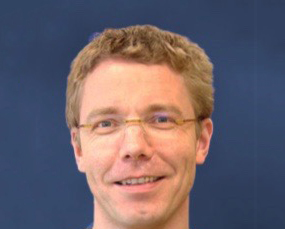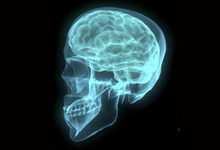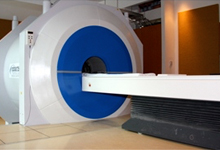Brain & Mind Imaging

Western’s neuroscience researchers leverage world-class imaging technology and expertise to better understand the function of the human brain – insight that could lead to new treatments for brain diseases, injuries and mental illness, as well as new approaches to learning and education.
Brain & Mind News

Abnormal brain interactions harm consciousness
Over the past few years, a great amount of scientific research has shown that even when the brain is "at rest" it still works. The brains of healthy people are organized into regions displaying similar activity, called resting-state networks. There are two networks related to the perception of either the external world or internal thoughts. So far, much research on consciousness has focused on the activity within these networks, rather than how they communicate between each other.

New Western neuroscience study shows how we learn from watching others
A new study from Western University shows that the parts of our brain that provide us with our sense of touch are activated when we watch someone else learn a manual skill.

Listen to your heart – it may tell you something about memory
Investigators at Western’s renowned Brain and Mind Institute have discovered that signals from inside your body can affect memories.

Internationally renowned neuroscientists join Western to further advance innovative technologies
An internationally renowned wife-and-husband team of cognitive neuroscientists have joined Western University after collaborating on game-changing research for the past 15 years at the University of Cambridge.

Western welcomes new neuroscientist who unlocks minds with machines
In his new laboratory, based at Western’s renowned Brain and Mind Institute, Diedrichsen and his collaborators are using robotics to study human movement to develop better treatments for strokes and spinal cord damage in humans.

International study explores the good, the bad and not-so ugly of hallucinations
According to a new study from Western University and the University of Cambridge, being able to visualize things in our mind’s eye is useful as it allows us to examine our memories, simulate possible future events and solve abstract problems.

The story behind a vegetative patient’s shocking recovery
Western University’s Adrian Owen provided expert analysis to award-winning science writer Kate Lunau for her long-form, feature story about the “shocking” recovery of a patient in a vegetative state, which was published by Maclean’s on December 31, 2015.

Why people with autism sometimes fail to see ‘the big picture’
New findings by Melvyn Goodale from Western University’s Brain and Mind Institute, in collaboration with Australian researchers at Swinburne University of Technology and La Trobe University, show that people with high autistic tendencies see the world very differently from those with low autistic tendencies.

Some patients in a vegetative state retain awareness, despite being unable to move
A study published by The Journal of Neuroscience challenges the more traditional scientific belief that using touch to recognize objects depends on visual circuitry in the human brain.

New study shows touch works independently of vision in object identification
A study published by The Journal of Neuroscience challenges the more traditional scientific belief that using touch to recognize objects depends on visual circuitry in the human brain.

Menon tapped for CAHS Fellowship by peers
Western researcher Ravi Menon was recognized by his peers last week as a fellow of the Canadian Academy of Health Sciences (CAHS) at the CAHS 2015 Forum and Annual General Meeting in Ottawa. The CAHS Fellowship recognizes Menon’s international leadership and significant contributions that have meaningfully advanced the academic health science.

Neuroscientists decode conscious experiences
Western researchers have extended their game-changing brain scanning techniques by showing that a short Alfred Hitchcock movie can be used to detect consciousness in vegetative state patients. The study included a Canadian participant who had been entirely unresponsive for 16 years, but is now known to be aware and able to follow the plot of movies.

Study may offer direction for cerebral palsy treatment
A new Western-led study may lead to more guided treatment for young cerebral palsy patients, potentially increasing effectiveness in treatment and reducing frustration for thousands of sufferers.

Rob Bartha neurodegenerative disease research
Think of a city road map. All the places you could possibly want to go – your home, your office, maybe the local coffee shop – are connected by roads. If you take the same road every time from, say, your home to the office, your actions would be in line with how neuroscientists generally regard human brain functions.

Rethinking traffic flow in the brain
Think of a city road map. All the places you could possibly want to go – your home, your office, maybe the local coffee shop – are connected by roads. If you take the same road every time from, say, your home to the office, your actions would be in line with how neuroscientists generally regard human brain functions.
Western's Imaging Firsts
Did you know?
Media Contact
Keith Marnoch
Director of Media and Community Relations
519.611.2111 x85468
kmarnoch@uwo.ca







